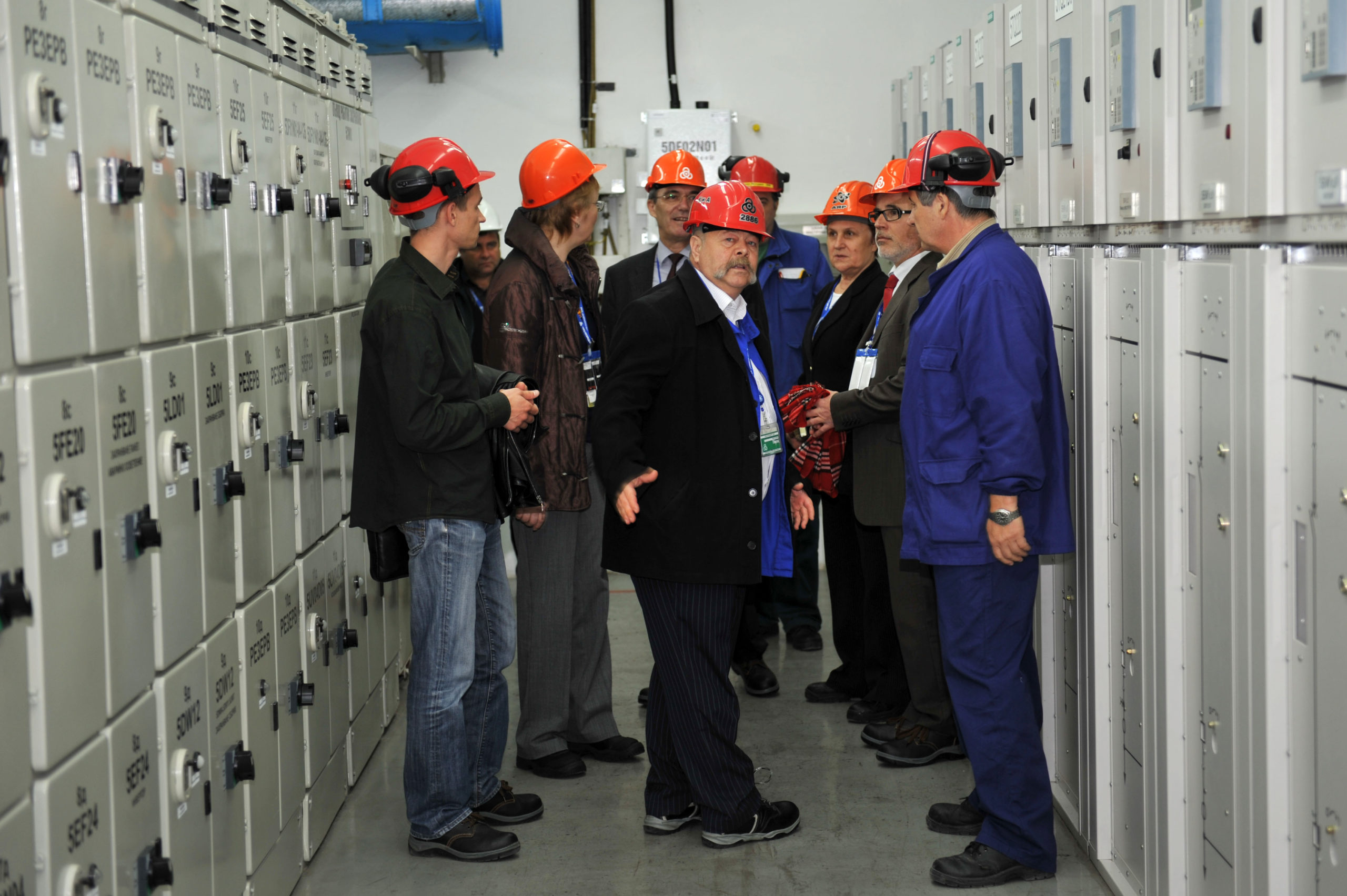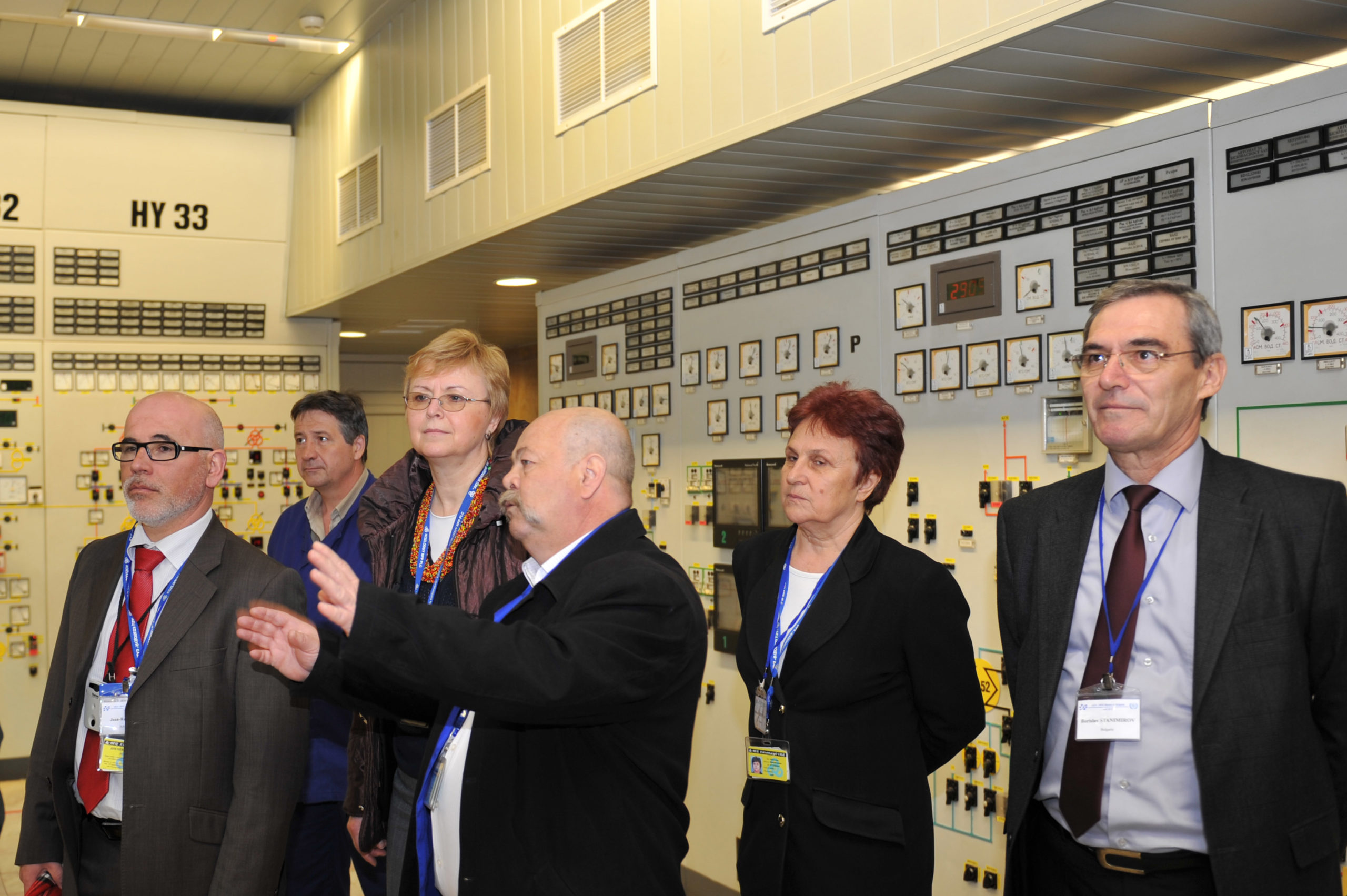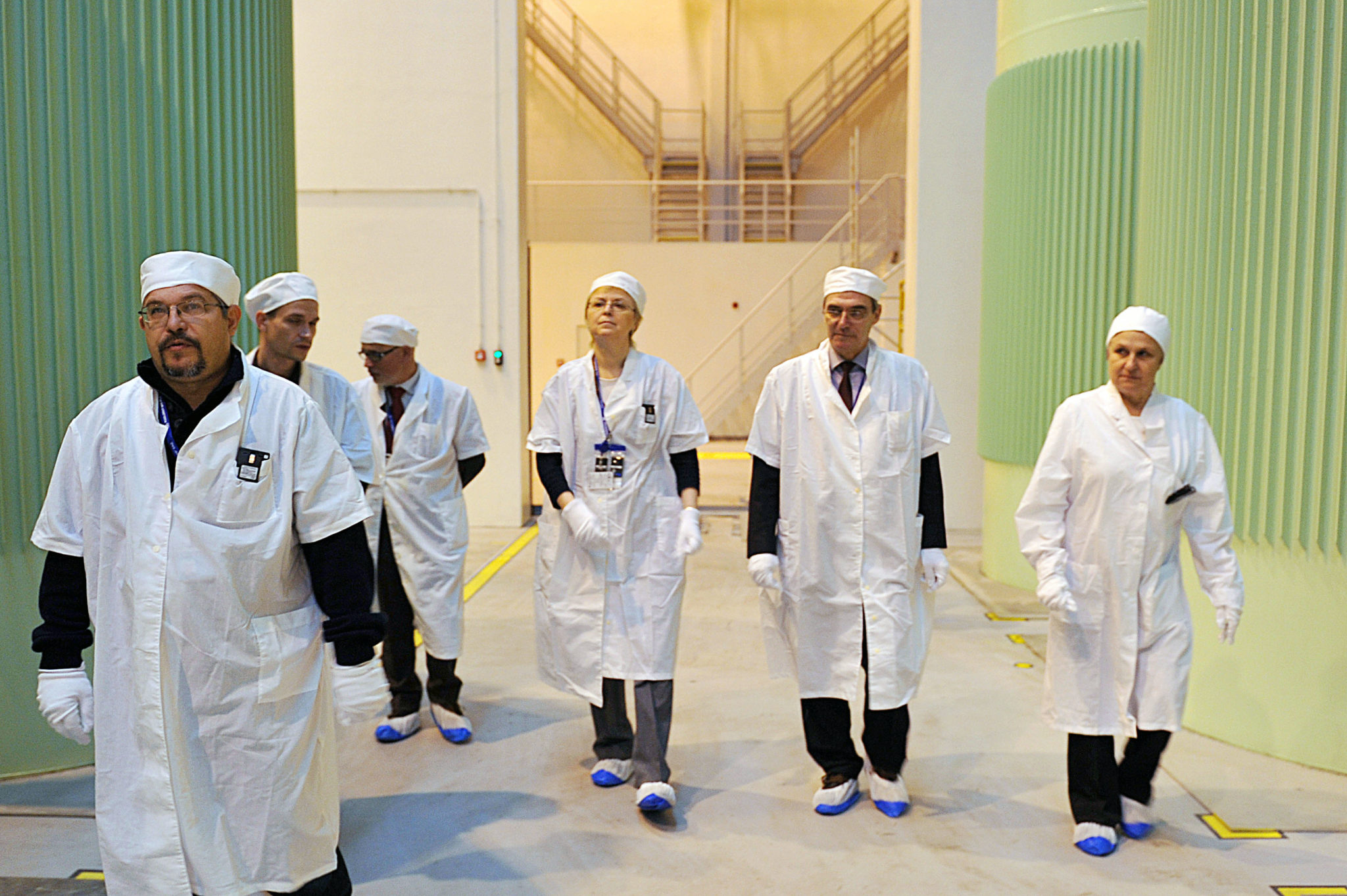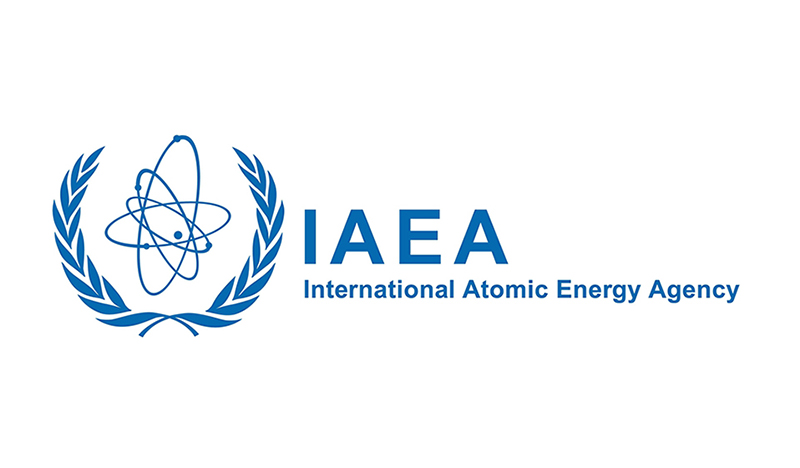IAEA (International Atomic Energy Agency)
The International Atomic Energy Agency (IAEA) is an autonomous, international organization and the world center for cooperation in the nuclear field. It was established in 1957 as part of the United Nations. The Agency is working with together with its member states, which currently number 172 countries (2020). Bulgaria is a co-founding member of the IAEA and a full member since its establishment.
The IAEA Secretariat is headquartered in Vienna, Austria. Operational liaison and regional offices are located in Geneva (Switzerland), New York (USA), Toronto (Canada) and Tokyo (Japan). The IAEA supports research centers and scientific laboratories in Vienna and Seibersdorf (Austria) and Monaco and works in close co-operation with the University in Trieste (Italy).
The IAEA Secretariat is a team of 2400 professional and support staff from more than 90 countries, including from Bulgaria.
The Agency is led by Director General General Rafael Mariano Gross (Argentina) and six Deputy Directors General who head the following departments:
- Deputy Director General and Head of the Department of Management – Ms Margaret Doane (USA)
- Deputy Director General and Head of the Department of Technical Cooperation – Mr Hua Liu (China)
- Deputy Director General and Head of the Department of Nuclear Energy – Mr Mikhail Chudakov (Russia)
- Deputy Director General and Head of the Department of Nuclear Safety and Security – Ms Lydie Evrard (France)
- Deputy Director General and Head of the Department of Nuclear Sciences and Applications – Ms Nadjat Mokhtar (Marocco)
- Deputy Director General and Head of the Department of Safeguards – Massimo Aparo (Italy)
IAEA is depositary of the following key international conventions and agreements in the field of the peaceful use of atomic energy:
- Convention on Early Notification of a Nuclear Accident;
- Convention on Assistance in the Case of a Nuclear Accident or Radiological Emergency;
- Convention on Nuclear Safety;
Joint Convention on the Safety of Spent Fuel Management and on the Safety of Radioactive Waste Management;
Convention on Physical Protection of Nuclear Material and its Amendment;
Vienna Convention on Civil Liability for Nuclear Damage.

Партньорска проверка на MAAE
април 2013

Партньорска проверка на MAAE
април 2013

Партньорска проверка на MAAE
април 2013
Bulgaria has ratiified the all of the above mentioned legally binding documents.IAEA programmes and budgets are set through decisions of its policy-making body – the Board of Governors, consisting of representatives of 35 member states.
The election of members of the Board of Governors is carried out during the annual General Conference of all Member States. Bulgaria has been elected member of the Board of Governors 9 times on a rotation principle, the last time in the period 2011-2013.For its activities, the IAEA is accountable to the United Nations General Assembly and, in certain cases, to the UN Security Council.
The Bulgarian Nuclear Regulatory Agency is the official channel in the country for liaison between the Republic of Bulgaria and the IAEA. The Chairman of the NRA is the head of the Bulgarian delegation to the IAEA Annual Conferences.
The Chairman of the NRA is responsible for the compliance with the obligations of the Republic of Bulgaria to prevent the diversion of nuclear material for the production of nuclear weapons through the implementation of the Treaty on the Non-Proliferation of Nuclear Weapons and the Safeguards System.
In the framework of the cooperation with the IAEA, inspectors from the Safeguards Department carry out regular inspections for the compliance of declared and available nuclear material in the nuclear facilities of Bulgaria.BNRA prepares the national reports of the Republic of Bulgaria in fulfillment of the obligations under the Convention on Nuclear Safety and the Joint Convention on the Safety of Spent Fuel Management and on the Safety of Radioactive Waste Management.
The BNRA Chairman is a central authority and contact point under the Convention on Early Notification of a Nuclear Accident, the Convention on Assistance in the Case of a Nuclear Accident or Radiation Emergency and the Convention on the Physical Protection of Nuclear Material and its Amendment.Representatives of the NRA participate in the IAEA Safety Standards Committees – Nuclear Safety Standards Committee (NUSSC), Radiation Safety Standards Committee) (RASSC), Waste Safety Standards Committee (WASSC), Transport Safety Standards Committee (TRANSSC), Emergency Preparedness and Response Standards Committee (EPReSC) and the Nuclear Security Guidance Committee (NSGC).NRA employees are national coordinators for the Republic of Bulgaria in the: International Nuclear Information System (INIS)International Nuclear Event Scale (INES)Incident Reporting System (IRS)Integrated Fuel Cycle Information System (NFCIS)Incident and Trafficking Database (ITDB)Unified System for Information Exchange on Incidents and Emergencies (USIE)Radiation Safety Information Management System (RASIMS)EuCAS Network at the Global Nuclear Safety and Security Network) (GNSSN)Technical cooperationBulgaria implements the co-operation with the IAEA mainly through national and regional projects from the Programmes for Technical Co-operation of the Department of Technical Cooperation.BNRA is national coordinator for the IAEA Programs for Technical Cooperation with the Republic of Bulgaria.
Bulgaria’s contribution for 2021 to the IAEA Technical Cooperation Fund is € 39,406, which is paid from the NRA budget.During the years the imppemented national projects have been in the field of nuclear safety, development of nuclear power, application of nuclear technologies and nuclear science in industry, healthcare, agriculture and others.
The regional projects as a whole cover the same fields but are implemented jointly with other countries from the European region for the purpose of solving common for these countries problems.In 2020 started the implementation of the new cycle of the IAEA Technical Cooperation Program for 2020-2021 with three national projects for Bulgaria:
- Implementation of an integrated approach for building administrative capacity in the Nuclear Regulatory Agency with a beneficiary BNRA and a budget for the entire cycle of 120,000 euros;
- Improving the productivity and quality of economically important crops through mutational cultivation and biotechnology. Beneficiaries are the Institute of Vegetable Crops – Maritsa, Plovdiv, the Institute of Canned Food, Plovdiv and AgroBioinstitute – Sofia, and the budget is 379,000 euros;
- Improving national diagnostic capabilities for the detection of hepatitis E virus in pigs and pig products. Beneficiary Center for Risk Assessment in the Food Chain with a budget of 205,000 euros.
Within this cycle, our country participates in over 30 regional and interregional projects of the Program, which are in the field of nuclear energy, nuclear safety and radiation protection, radioactive waste management, healthcare and agriculture.At the end of 2021, the IAEA Technical Cooperation Program for the 2022/23 cycle was approved. Bulgaria again participates with 3 projects:
- Customizing Existing National Nuclear Capacity by Building Infrastructure to Support Human Resource Development and Nuclear Knowledge Management Aspects, beneficiary of which is the College of Electronics and Energy at TU Sofia with a budget of 220,080 euros.
- Improving Crop Water Productivity and Nutritional Quality of Orchards with the beneficiary Institute of Fruit Growing – Plovdiv. The project budget amounts to 239,772 euros.
- Enhancing National Capacity for Ensuring Radiation Protection of Patients Undergoing High Dose Medical Imaging Procedures. The beneficiary of the project is “Alexandrovska” University Hospital and the overall budget amounts to 343,290 euros.
Through BNRA, the applications for specializations, scientific visits and training on the programs and projects of the Agency are submitted to the IAEA Secretariat.

 Български
Български


